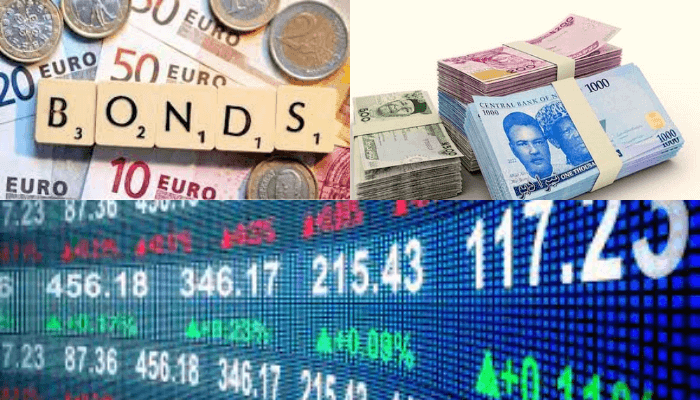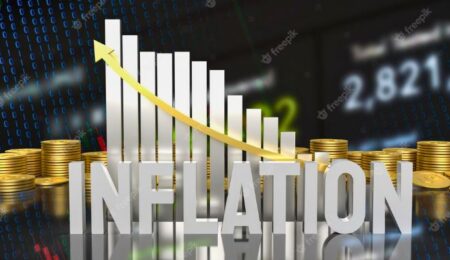Nigeria’s new President Bola Tinubu is quickly warming himself to investors after wasting no time in announcing an end to the country’s costly fuel subsidy program and unveiling plans to adopt a single exchange rate.
Investors are already reacting to Tinubu’s pro-market policies with the country’s dollar bonds rallying. According to Bloomberg data, debt due in 2047 jumped 3.3percent to 66.750 cents on the dollar by 10:10 a.m. in London. Bonds due in 2049 gained 2.9 percent and those maturing in 2051 advanced 3.5 percent.
Stocks gain N1.51trillion in one day
Similarly, the broadly positive market sentiment that has lingered in the Nigerian equities market since the start of May persisted on Tuesday, the first working day of President Bola Tinubu’s administration of the economy.
The market recorded its highest daily gain this year by 5.23percent or N1.508trillion, pushing up the year-to-date (YtD) positive return to + 8.77 percent as stock investors continued to buy into value tickers with attractive prices.
The Nigerian Exchange Limited (NGX) All-Share Index (ASI) and its equities Market Capitalisation rose from the preceding day’s low of 52,973.88 points and N28.845 trillion respectively to 55,745.74 points and N30.353trillion. In 9,916 deals, investors exchanged 1,078,230,806 shares valued at N15.799billion.
“We expect the pro-market posture of the new administration to increase investors’ confidence and optimism in the market. Thus, leading to buying interest particularly in the financial services and oil and gas sectors,” analysts at Lagos-based Meristem said.
“However, we do not rule out the possibility of profit-taking activities on tickers that have gained in the previous weeks. Overall, we anticipate the overriding sentiment in the market to be positive during the week,” the Meristem analysts said.
Naira gains 1.58 percent or N12 at the parallel market
Likewise, Naira on Tuesday strengthened against the dollar, gaining 1.58 percent or N12 at the parallel market, after President Tinubu signaled an adoption of a single exchange rate in his administration.
During the intra-day trading session, precisely at 12.40pm, the dollar was quoted at N755 compared to N767 per dollar quoted in the morning, at about 9.57am of the same day.
Traders told BusinessDay that there is increased supply of dollars from individuals amid moderate demand.
Uche Uwaleke, professor of capital market at the Nasarawa State University Keffi, said, “I support the removal of fuel subsidy due to its huge cost on the economy. Fuel subsidies have proven to be unsustainable.
Read also: Nigeria Eurobonds jump as Tinubu hits ground running
“I equally support unification of exchange rates because doing so will discourage round tripping, bring more transparency to the forex market which supports foreign investments.
“However, in order to minimize negative impact on the livelihoods, issues of fuel subsidy and exchange rates unification which he mentioned in the speech should be handled with care. Stakeholder engagement is required. To this end, I suggest an immediate constitution of an “Economic policies’ coordinating committee” made up of Economic and Finance experts,” he said.
“The harmonisation of multiple exchange rates will lead to favourable outcomes for the country’s fiscal purse. A downward adjustment to the naira exchange rate will result in higher naira revenue derived from the conversion of dollar earnings, said analysts at FBNQuest.
“It will also close the arbitrage gap between the official and parallel market exchange rates. In the President’s statement, he unequivocally declared the removal of fuel subsidies. This step is necessary to create much-needed fiscal space,” the analysts said
In his inaugural speech last Monday, President Tinubu highlighted the need for a unified exchange rate and a reduction in interest rates to drive up investment in the country. Barely hours after Tinubu said “fuel subsidy is gone”, long queues resurfaced across petrol stations in major cities as several petrol stations shut their pumps.
Analysts still see value investing in dollar assets
While Tinubu commits to strengthening the Naira, analysts have asked investors who are saving in the dollar to consider long-term benefits.
Samson Owolabi, investment research analyst ARM securities said, “For me, I think it is going to be a hasty decision for people to start having fears and bias about their dollar investment. Dollar investments are still very a good “BUY” for now given the economic relationship between Nigeria and US”.
He said, “One of the reasons why the dollar has been declining in value in recent times is because of the concerns as regards raising the US the debt ceiling. I believe once this has been raised, it will reduce the tension.
Also, unification of the exchange rate may not be the ultimate solution to strengthening the Naira”.
He believes that the demand for dollar is the major issue here, “especially given the rate at which we export crude to import refined petroleum. I believe the impacts of the full functioning of Dangote refinery (especially when it hits the market around August) and the stoppage of refined fuel importation will have more effect in the long run.”
“However, I think investors should take caution in investing in the dollars at the moment as the factors mentioned above (stoppage of fuel importation) will have more effect than the unification of the FX exchange rate system,” Owolabi said.
Also speaking, Ifeoluwa Adegoke, lead financial consultant at MTWI Services said, “A unified exchange rate is a good thing for the Nigerian economy as it would strengthen our currency and make it less vulnerable to manipulation”.
According to Adegoke, “I know the worry of people with dollar denominated investments and savings might be getting a lower exchange rate for their dollars. Well, I will say that is a legitimate concern. However, I will like to remind you that dollar is still a stronger currency than naira and that will not change overnight. I see no reason to panic and anyone with savings or investment in dollars should think long-term.”






